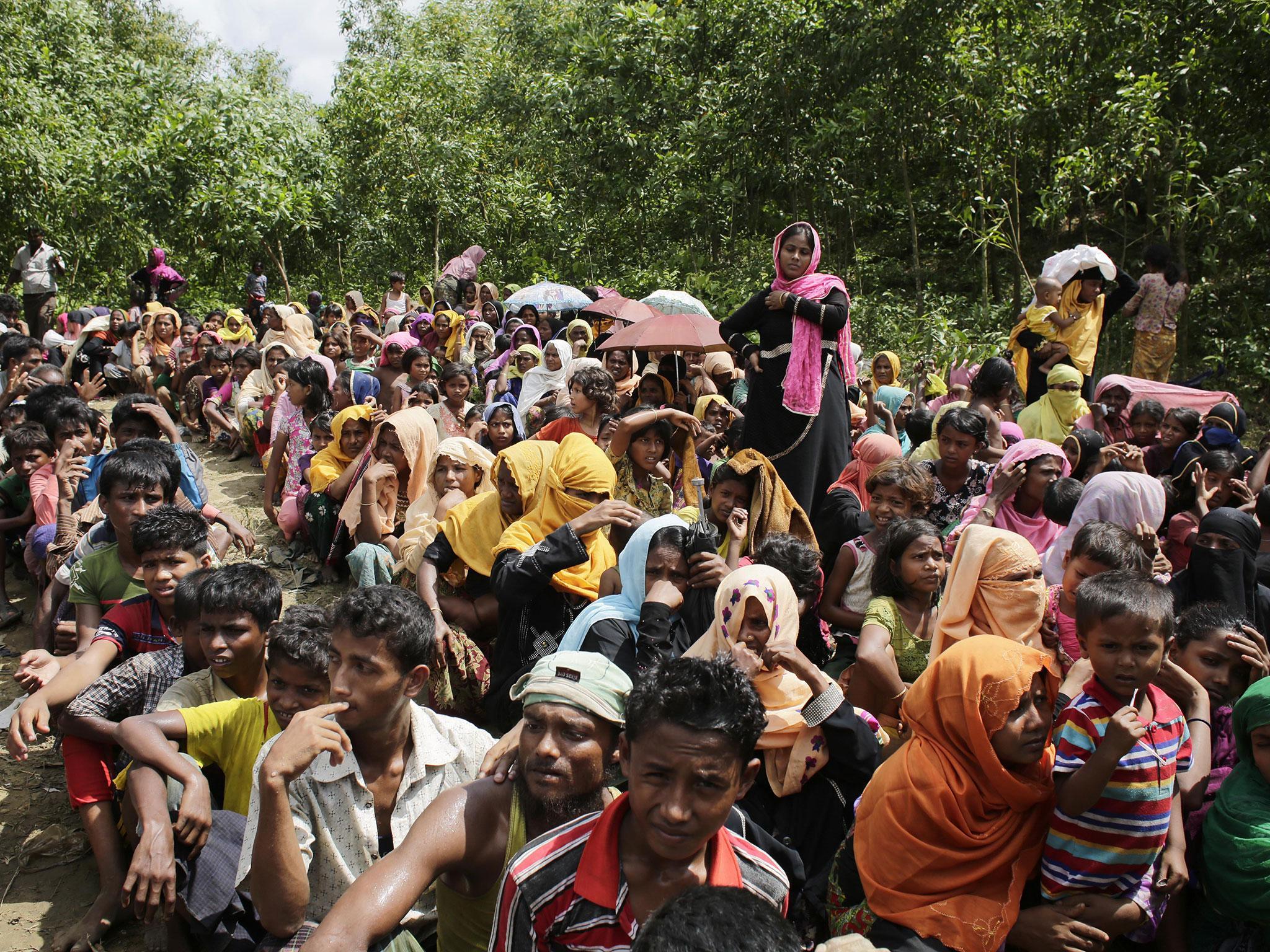Bangladeshis should remember their own history when it comes to the fleeing Rohingya Muslims
One cannot help but draw parallels with Pakistan’s brutal suppression of the Bangladeshi uprising in the 1971 Bangladesh Liberation War


Your support helps us to tell the story
From reproductive rights to climate change to Big Tech, The Independent is on the ground when the story is developing. Whether it's investigating the financials of Elon Musk's pro-Trump PAC or producing our latest documentary, 'The A Word', which shines a light on the American women fighting for reproductive rights, we know how important it is to parse out the facts from the messaging.
At such a critical moment in US history, we need reporters on the ground. Your donation allows us to keep sending journalists to speak to both sides of the story.
The Independent is trusted by Americans across the entire political spectrum. And unlike many other quality news outlets, we choose not to lock Americans out of our reporting and analysis with paywalls. We believe quality journalism should be available to everyone, paid for by those who can afford it.
Your support makes all the difference.Earlier this week, a senior UN official described the plight of Burma's Rohingya people as a “textbook example” of ethnic cleansing. Although the Burmese government denies reports of rapes, killings and house burning, and it is difficult to be clear on exactly what is occurring, because of restricted media access, accounts of severe persecution continue to be heard from fleeing refugees. These stories include horrific accounts of Rohingya children being beheaded and civilians burned alive.
The Rohingya are an ethnic group, largely Muslim, who are often described as “the world’s most persecuted minority”. For centuries, they have lived in Buddhist-dominated Burma. However, since they are not recognised as an ethnic minority of Burma, they suffer from appalling discrimination and human rights’ abuses. Their rights to study, work, marry, travel, practise their religion and access health services have been restricted and they are unable to vote. From surveys completed by 500 participants in seven cities in Myanmar, it appears that 85 per cent claimed to dislike Muslims because of the fear of turning the country Islamic, undoubtedly fuelled by anti-Muslim propaganda.
Rashida, 25, recently fled with her husband and three children from Rakhine State, Burma, after her family home and the paddy fields they farmed had been burned. She says, “The Bangladeshi people are being very kind and are donating clothes and food, but I have not seen any international organisation. I wish they would help us, too – we need food to eat.” She is probably unaware that Burma has blocked all United Nations’ aid agencies from delivering vital supplies to Rohingya citizens.
Pakistani girls' and women’s rights campaigner and Nobel peace winner, Malala Yousafzai, has called on her fellow laureate Aung San Suu Kyi (technically Burma’s state counsellor as she is legally ineligible to hold the office of president) to put an end to the violence. Yousafzai is not the only Nobel peace laureate to call on Suu Kyi to stop the genocide. Desmond Tutu shamed Suu Kyi last week saying her “silence is too high a price” on the unfolding “genocide”.
One cannot help but draw parallels with Pakistan’s brutal suppression of the Bangladeshi uprising in the 1971 Bangladesh Liberation War. It is estimated that more than three million people were killed, hundreds of thousands of women raped during the bloody nine-month battle and the ethnic cleansing of Hindus. In March 1971 the Pakistani army launched Operation Searchlight and began systematically killing of academics, teachers and professionals. General Tikka Khan was dubbed the “Butcher of Bengal” for his role in Operation Searchlight; similar to Burma’s General Min Aung Hlaing role whose soldiers stand accused of rape, torture and murder.
But for the persecuted Bengalis of 1971, India played a pivotal role in providing shelter, food and opened up its borders. India’s prime minister at the time, Indira Ghandi, played a pivotal role in mobilising world leaders to condemn the atrocities against the Bengali people and sent her army to support the Bengali freedom fighters.
The Bangladeshi government has the opportunity to offer support to the Rohingyas – together with international aid organisations – while they are taking refuge in makeshift camps in Bangladesh. Prime Minister Sheikh Hasina condemned Burma as has the opposition Bangaldesh National Party Leader, Khaleda Zia for atrocities that had reached a level beyond description. Sheikh Hasina has demanded that Burma bring the Rohingya back, while encouraging the international community to place pressure on Burma to ensure the safety of the Rohingya. Bangladesh has also proposed creating “safe zones” run by aid groups for the Rohingya Muslims in Rakhine to stop hundreds of thousands of refugees crossing into its territory. Bangladesh needs world leaders to support this intervention – just like in the Bangladesh civil war.
British Bangladeshis are also playing their part in raising funds and aid for the refugees and organising demonstrations over the past few weeks calling Burma to stop the persecution of the Rohingya people and for world leaders to intervene. For the once-persecuted people of Bangladesh it is a time to provide shelter to the stateless people of Rohingya – a time not to forget Bangladesh's bloody past but to act on the memory that justice and humanity must again prevail and silence is not an option.
Rabina Khan in a councillor in the Shadwell ward and group leader for People’s Alliance of Tower Hamlets
Join our commenting forum
Join thought-provoking conversations, follow other Independent readers and see their replies
Comments